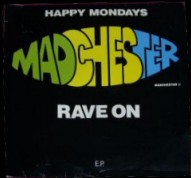June 25, 2006
Predators and piglets: A week and a day in the unlife
Blogs are just online diaries
This is what I did last week when I wasn't at work.
Saturday Text from Bacteria Grrrll: 'Worst. Dr. Who. Eva!' Indeed: surely some sort of nadir reached with this smug exercise in PoMo. I've tried to ignore the familialism and emotional pornography, but that has become impossible in the second series. It's rigorously Oedipal - Oedipus is the myth of no myths (Oedipus first of all defeats the Sphinx in an apparent but short-lived victory for psychological realism); hence the faux psychological 'depth' of postmodernity (once we feared monsters, now we know it's all about eeeeemotions....) Heretically, I think that the 'whatever time you travel to, it's always postmodern' effect is not unrelated to Billie Piper; Tennant's disappointingly underwhelming performances so far have meant that the programme has been increasingly dominated by Piper, one consequence of which has been the de-Alienatization of the Doctor.
Monday Morning. Interview John Foxx.

Evening. On the invitation of the excellent Jon Wozencroft, attend the launch event for Matthew Robertson's book on Factory and design. On the panel, Robertson, Peter Saville, Wilson, Pat Carroll (from Central Station, who did the Mondays' covers) and Rick Poyner. This notable for the schism it revealed in Factory (and, more broadly, in post-punk Manchester culture). Saville was the representative of the old pop-Modernist Manchester; Caroll, on the other hand, was a bluff, plain speaking spokesman for Ladchester. It is interesting to reflect on what was repressed in both cases. In Joy Division and early New Order it was ladsish carnality; at the time of the Mondays, it was artistic aspiration. But the Mondays weren't the Stone Roses (a band who always struck me as more Liverpool than Manchester in their sound and swagger), i.e. they weren't anti-Modernist rockists selling retro plod to students as the rave-inspired New Thing. The Mondays' transposition of Sly Stone and Krautrock into a Mancunian idiom, their translation of p-funk glossalalia into what Simon called 'dosser speak', was a mystical materialism - but they had to be sold as just ordinary lads, havin' a fookin laff, any weirdness played down, attributed to the pills... (One more way in which drugs, far from undermining the reality principle, tend to shore it up...)
Caroll gives it plenty of cloth cap, plays to the anti-intellectual gallery, gets laughs. Peter Saville marginalized, literally, his chair edging further and further to the side of the stage as the evening wears on. Wilson as slimily middlebrow as ever. This 'we didn't run a business' thing always struck me as middle class hippie indulgence; OK for you Tony, with your day job, but what about the artists?
Afterwards, am introduced to Richard Boon. Drunk, boring and boorish. Godfather of punk Boon sneers that blogs are 'meaningless' because there is no 'validation'.
Old man ... you watch me walk away...
Tuesday Zizek in the p.m. (And, incidentally, folks: I have sat next to Daniel at these lectures, and I can confirm that his uncannily accurate transcriptions do come from his own - really quite sparse - notes, not from any recordings.) Z is in a blistering form, eviscerating the liberal Left, prompting tediously drawn out immuno-response from the floor by Neg Dialectical harridan. I ask Z about taking over the State - he thinks we should do it, I think we shouldn't. I think Badiou's point about 'distance from the State' is crucial; this different both from Old Left Statism, and D/G type nomadology Obviously, there are long discussions to be had about this. Have one with Owen on the way home. Briefly, my claim would be that there is no way of taking over the State without the form of the State taking over you. Why not lose sentimental attachment to revolutions that have failed, and learn lessons from one that has succeeded (the neoliberal revolution)? To be continued, evidently...
WednesdayRead Tim Finney's Pitchfork review of Burial, after seeing the link on Blissblog. It's odd, Tim is one of the writers I most admire and pay heed to, but I often find my aesthetic judgements radically at odds with his. So it is here, since one of the things I most enjoy about the Burial album is its consistency, both of tone and quality. Love Simon's coinage (for dubstep) 'desolationist'. Note also that my New Statesman piece in 94, 'Hello Darkness', also paralleled jungle with isolationism.
See also Simon's review in Observer Music Monthly and Marcello's on Church of Me: delighted that Marcello appreciates the Burial LP; when I first heard it, I thought straight away, 'If ever there is a Church of Me record, it is this...'
Thursday
Watch Brazil huff and puff before eventually beating Japan. Anglo-Brazilophilia is a complement to post-56 transcendental defeatism (in which England's rapacious success as an imperial power is retrospectively read as a history of heroic failure). Brazil feature in the post-colonialist imaginary as noble savages, throbbing with samba rhythms, their exuberance the complement to our rationing pragmatism and monochrome dullness. Interesting to watch this religious faith start to crumble. For at least the last twenty years, probably longer, 'Real Brazil' has meant aged technicolour images from 1970, which are defiled by the sporadically brilliant, often ineffective, sometimes mediocre performances of the team on the pitch. The sacralized Image of Brazil is kept alive by treating most of what they actually do as an anomaly, a deviation from the Reality (i.e. the fantasy). But their mediocrity is now so glaring that even the most dedicated keepers of the flame are having trouble maintaining the Faith.
Compare Pele to Ronaldo. Pele featured in the Brazilophile imaginary as the a figure of non-utile excess, a carefree artist in the Nietzschean sense, indifferent to the narrow teleology of winning matches ... check the way that most of the endlessly replayed footage we see of Pele is not of him scoring goals, but audaciously missing chances contrived by force of wit. Ronaldo (like Romario) before him is the metonym of the post-94 Brazil; a clinical technician, a jaded assassin, his very boredom and overweight diffidence part of the camouflage that make him so effective. Catatonia and rush.
Whereas Pele - in the fantasy - stood for the plucky and the poor against the established and the staid, Ronaldo's goals now are strikes for the Reality Principle, signs that the undeserving and the lazy, the moneyed and the mighty, will always win in the end. Watching him, I'm reminded of Houllebecq's description of predatory animals in Atomised. 'Graceful animals like gazelles and the antelopes spent their days in abject terror while lions and panthers lived out their lives in listless imbecility punctuated by explosive bursts of cruelty. They slaughtered weaker animals; dismembered and devoured the sick and old, before falling back into a brutish sleep where the only activity was that of the parasites feeding on them from within.'
British commentators are sniffy about Ronaldo, no doubt because he is so besmirches their Ideal (of) Brazil. The Brazillian squad, managers and press, however, know that Ronaldo (even if 60% fit) is essential; without him, Brazil occasionally showboat without product, but mostly just labour unattractively.
Friday night in the city of the dead. Go to Forward at the End. Tottenham Court Road at 11.30 - all the alcohol zombies lurching and swaying... Hell is a city on earth, the yelps and howls of pleasure indistinguishable from the screams of the damned... Inside the End, it gets worse. With I.T. and a sceptical Bat. All Bat's prejudices about Dubstep confirmed by murky boy-heavy atmosphere. Sound like porridge. Bottom end sludge. Bat says it's because the EQ is set up for techno. Vague but pervasive sense of dope smoker menace. Leave early, reflecting on how much better in every way DMZ is... On the night bus, half-asleep, drift into a Schreber delirium in which my entrails are pulled out...
Saturday
Brockley summer fair at Hilly Fields. Exhausted, and this is the perfect environment for convalescence. In the bucolic sunlight, looking down on the rest of the city, it's possible to fall into a languid revery about Brockley as a racially mixed utopia.
And I.T. gets to handle a piglet...
Infinite thinking with pigs:
- Fairs in which pigs were the sole or principal commodity were extremely rare in England and in Europe generally, largely because unlike sheep, horses and cattle, pigs cannot be driven over long distances, and so were usually disposed of at small, weekly markets ... On the other hand the symbolic importance of the pig at the fair and its long association with the festive scene have tempted commentators to view the pig and its 'low' significance as a fixed, transhistorical notion going back to 'time out of mind.'
- ... Bakhtin's major advance in 'thinking pigs' was to recognize that the pig, like the fair itself, had in the past been celebrated as well as reviled. It was precisely the ambivalence of the pig, at the intersection of a number of important cultural and symbolic thresholds, which had traditionally made it a useful animal to think with.
- Peter Stalllybrass and Allon White, The Politics and Poetics of Transgression
Posted by mark at June 25, 2006 02:55 PM | TrackBack
